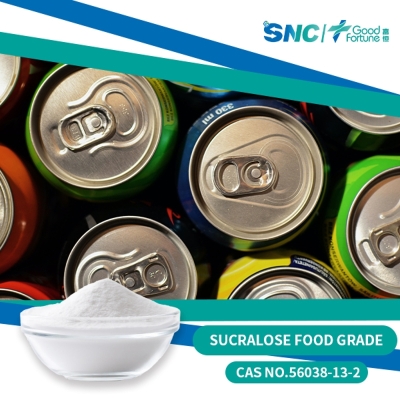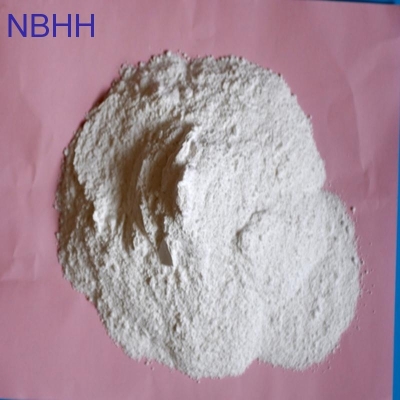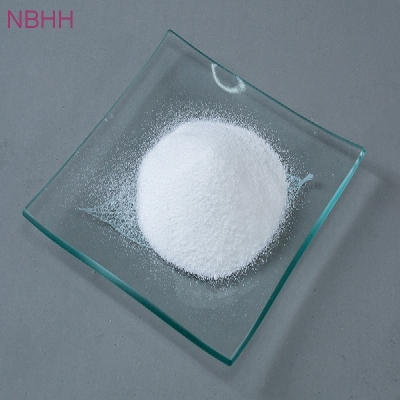-
Categories
-
Pharmaceutical Intermediates
-
Active Pharmaceutical Ingredients
-
Food Additives
- Industrial Coatings
- Agrochemicals
- Dyes and Pigments
- Surfactant
- Flavors and Fragrances
- Chemical Reagents
- Catalyst and Auxiliary
- Natural Products
- Inorganic Chemistry
-
Organic Chemistry
-
Biochemical Engineering
- Analytical Chemistry
-
Cosmetic Ingredient
- Water Treatment Chemical
-
Pharmaceutical Intermediates
Promotion
ECHEMI Mall
Wholesale
Weekly Price
Exhibition
News
-
Trade Service
Recently, the National Health Commission replied to the "Suggestions on Promoting the Legislative Improvement or the Construction of National and Industry Standards for Food Packaging Labels for Minors" put forward by deputies to the National People's Congress that the current national food safety standard system has covered children's food safety and nutrition requirements, and will accelerate the introduction of the newly revised "National Food Safety Standard General Principles for Prepackaged Food Nutrition Labeling" (GB 28050), and do a good job in publicity and interpretation such as the "Dietary Guidelines for Chinese School-age Children (2022)".
Strengthen nutritional dietary guidance
for minors.
The National Health Commission said that the Party Central Committee and the State Council attach great importance to the nutrition and health of children and adolescents, and the "Healthy China Action (2019-2030)" and "National Nutrition Plan (2017-2030)" put forward relevant requirements
for strengthening children's nutrition and health from many aspects such as student nutrition improvement and reasonable diet.
The National Health Commission pays great attention to the food safety and nutrition and health of children and adolescents, and continuously improves the national food safety standard system in accordance with the requirements of the "most rigorous standards", and the current national food safety standard system has covered children's food safety and nutrition requirements
.
First, the food safety standard system covers children's food
.
Issued a series of standards for staple and auxiliary foods for infants and young children, and strictly limited
the safety indicators and nutritional content of food for infants aged 0-3.
Basic food safety standards such as the Standard for the Use of Food Additives (GB 2760), the Limit of Contaminants in Food (GB 2762), and the Standard for the Use of Food Nutritional Enhancers (GB 14880) have been issued to fully consider the needs of children and other special groups and ensure the safety
of children's food.
For foods with large amounts of children, such as candy, jelly, puffed food, beverages, dairy products, pastries and bread, etc.
, corresponding national food safety standards
have been formulated.
The second is to strengthen children's dietary nutrition guidance
.
Publish dietary guidelines for preschool and school-age children, snack guidelines for children and adolescents, nutrition and health guidance guidelines for children and adolescents, and core information on infant feeding health education, etc.
, and cooperate with relevant departments to issue regulations on school food safety and nutrition and health management, and guide children to eat scientifically and choose food
reasonably.
Make use of National Nutrition Week, "May 20" Chinese Student Nutrition Day, Food Safety Publicity Week, World Breastfeeding Week and other nodes to carry out various forms of education to improve children's nutrition and health literacy
.
The third is to strictly prevent and control children's food safety risks
.
In view of the hype of the concept of children's food and the induction of unreasonable consumption, cooperate with the market supervision department to strengthen food safety supervision
.
Increase the monitoring of food safety risks with large consumption by children, highlight food additives, heavy metals and other projects, and key links such as rural areas and around schools, continue to pay attention to children's foodborne disease information, and promptly notify and cooperate with relevant departments in investigating and handling safety incidents
involving children's food.
About "children's food" claims and standards
.
According to domestic and foreign laws and regulations and relevant scientific research, in addition to the main and auxiliary foods consumed by infants and young children need special provisions on the content of nutrients, the diet of children over 3 years old should meet the nutritional development needs
of children by advocating diversified dietary combinations.
China has implemented a strict food safety supervision system, and the current national food safety standard system covers the food safety and nutrition requirements
of specific groups such as children.
At present, the actual nutritional value of most "children's food" on the market is not significantly different from adult food, and enterprises use this as a gimmick to obtain high profits, and some companies even exaggerate the role of children's food on children's safety, nutrition, growth and development, etc.
, to seek improper commercial benefits
.
On the issue of the use of food additives
.
The risk assessment of food additives in the National Standard for Food Safety: Standard for the Use of Food Additives (GB 2760-2014) comprehensively considers the dietary intake of people of different age groups, takes the allowable daily intake as the health guidance value, and uses the survey data of food intake and food additive use of different age groups obtained from the nutrition survey of Chinese residents for comprehensive evaluation, and the assessment results are applicable to people of different age groups, including minors
.
Therefore, GB 2760 can ensure the safety
of the use of food additives, including minors.
This is also the common practice
of the Codex Alimentarius Commission and other countries and regions of food additive regulatory standards.
The abuse of colorants, sweeteners, etc.
mentioned in the proposal belongs to the excessive scope and excessive use of food additives, and should be strictly investigated and dealt with
.
About the "three highs" logo issue
.
The National Food Safety Standard General Principles for Nutrition Labeling of Prepackaged Foods (GB 28050) makes mandatory provisions
on the content of fat and sodium in the nutrition facts table of prepackaged foods.
At present, the standard is being revised, and it is proposed to add mandatory labeling requirements for saturated fat content and sugar content, while allowing the use of graphics, text and other forms to explain
energy, sodium content, fat content, etc.
In order to implement the relevant content of the Law on the Protection of Minors, it is proposed to require prepackaged foods to be mandatory to bear the prompt "Children and adolescents should avoid excessive intake of salt, oil and sugar"
.
It should be noted that although excessive intake of salt, fat and sugar is an important risk factor for chronic disease, sodium, fat and sugar are also essential nutrients for the human body, and different groups of people need different
amounts.
Therefore, the formulation of the judgment standards of high-salt, high-fat and high-sugar foods requires rigorous and scientific evaluation as a basis, and relevant research work is currently being carried out
.
The National Health Commission said that it will speed up the issuance of the newly revised "National Food Safety Standard General Principles for Nutrition Labeling of Prepackaged Foods" (GB 28050), do a good job in publicity and interpretation such as the "Dietary Guidelines for Chinese School-age Children (2022)", and strengthen nutritional dietary guidance
for minors.
Strengthen communication and coordination with the State Administration for Market Regulation, the Ministry of Industry and Information Technology and other departments to form a joint force to jointly study and solve prominent problems
in food claims to be suitable for specific groups of people such as children.
China Food News(December 20, 2022, Version 03)
(Responsible editor: Yuan Guofeng)







